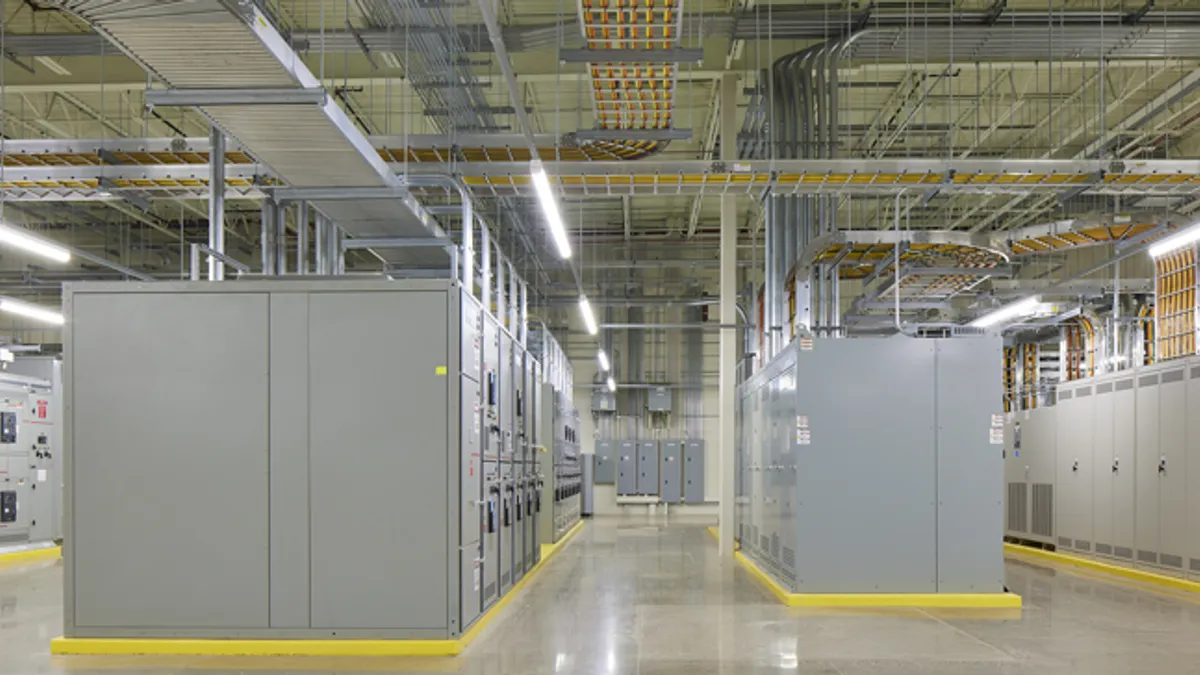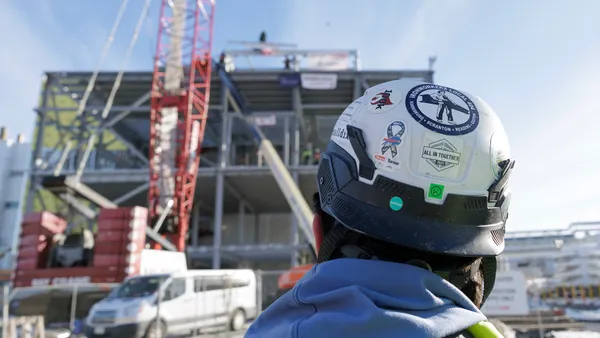It's estimated that the number of online devices will reach 29 billion in 2030, up from 18 billion in 2018. As a result, the global data center market will grow, with some forecasts saying the market will reach $517 billion by 2030, up from $187 billion in 2020.
With the impressive expansion comes growing urgency—and opportunity—to make data centers more sustainable.
Data centers accounted for an estimated 400 terawatt hours in 2020, and in the U.S. alone, data centers consume 1.7 billion liters of water per day. Today, a medium-sized data center uses 15 megawatts of power and more water than two 18-hole golf courses.
"Everybody wants to make data centers more efficient and sustainable," says Sean Mulligan, PCL's director of data centers and mission critical. "The key is implementing greener practices while still allowing the data center to operate at full capacity."
Boosting sustainability without compromising the performance of the data center requires deep expertise in many fields, according to Mulligan. These include sustainable power generation and transmission; data center performance requirements and construction techniques; relevant local and regional regulations; water treatment construction and more.
Every Solution Under the Sun
A construction partner with extensive experience in these areas – such as PCL Construction - can make a big difference for clients looking to build new data centers or retrofit existing ones to be more environmentally friendly.
"There's a true complexity to the energy world," says Rodolfo Bitar with PCL. "You might not see solar fields next to a data center for it to be using green energy. Colocation is not necessary for solar power to reach a data center. Green energy is almost like the banking system—you can pull money from any ATM, not only the branch where you deposit it."
Bitar manages business development for PCL's solar work, which grew to close to $1 billion in new work last year.
"We're always growing our expertise – for example, we're currently exploring battery technology and other storage sources that could help data centers stay powered during the night or days with less sun," Bitar says.
The company is also working on another side of sustainable data centers: conserving water used to cool down overheating servers. PCL's Civil Infrastructure Division is leveraging its experience building water treatment plants across the U.S. to develop cutting edge water filtration systems that can help data centers achieve a net-zero use of water.
It's another reason why PCL's broad expertise and experience is useful to clients. The team can leverage expertise from across sectors to solve challenges and break new ground in the mission critical industry.
"The combination of solar, water and data center experience is a rare find in the construction industry," says Patrick Malone business development manager for PCL's Civil Infrastructure Division. "It helps us to find win-wins for our clients and for the environment."
"There's an ever-increasing demand. Coming up with solutions to meet those demands is the beauty of this industry. Creativity and expertise are both renewable resources."










